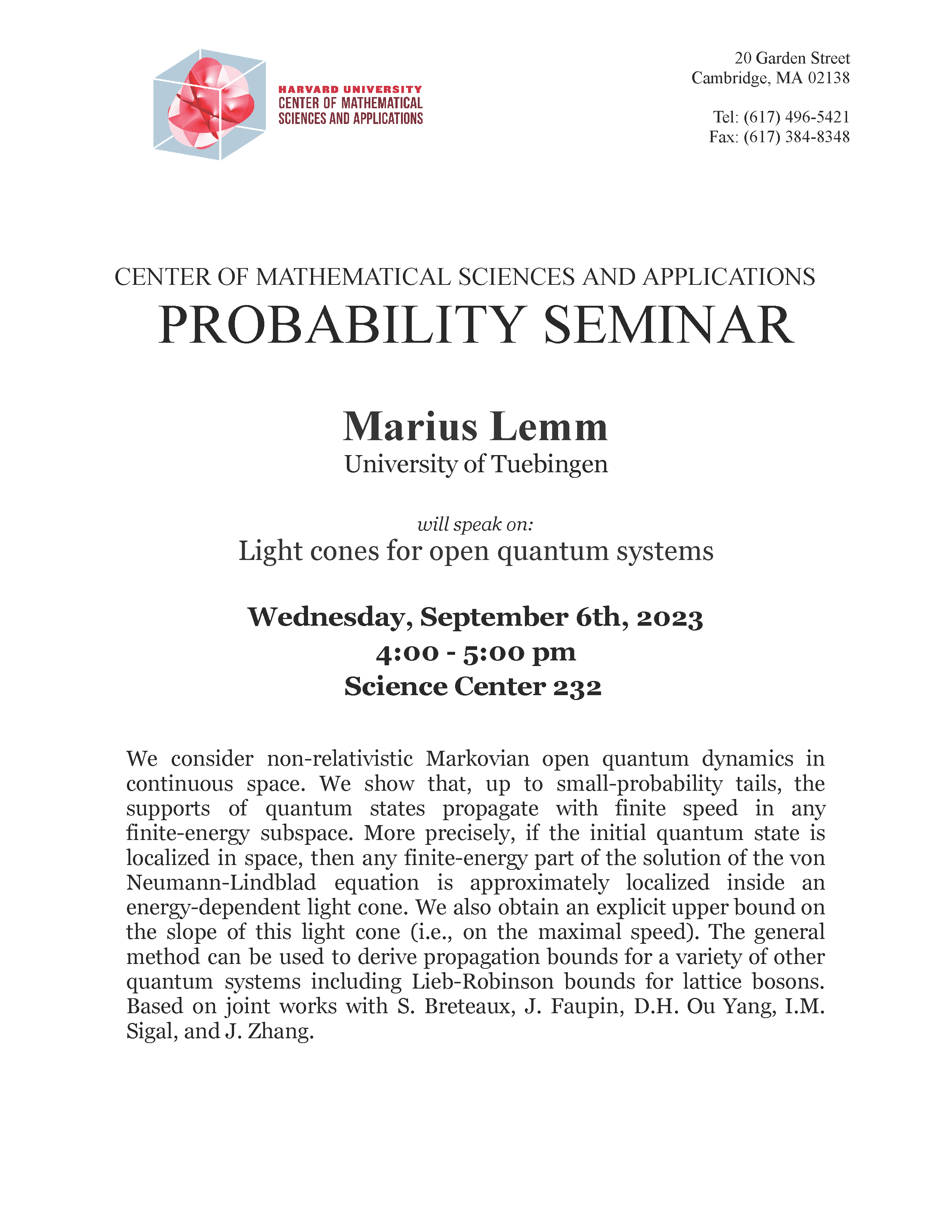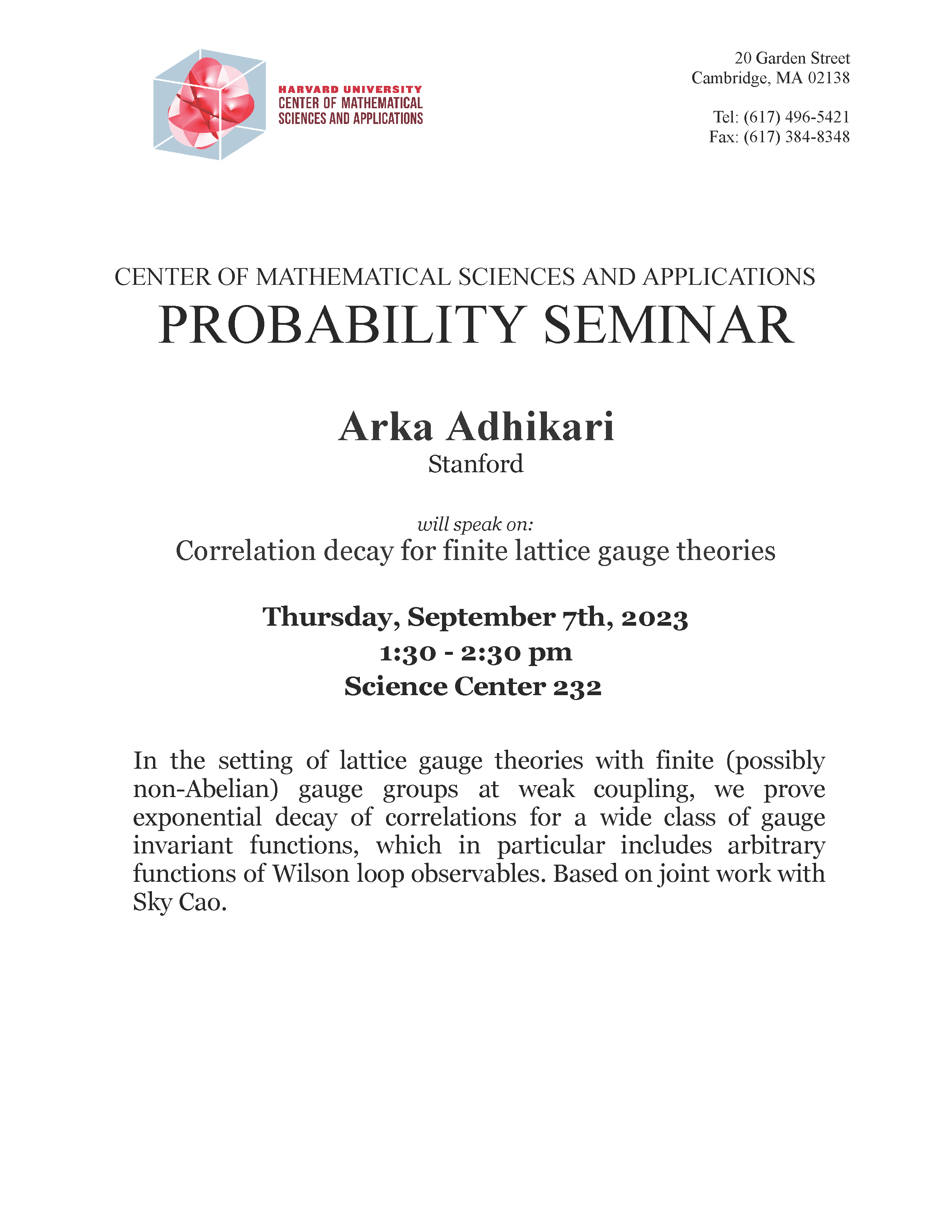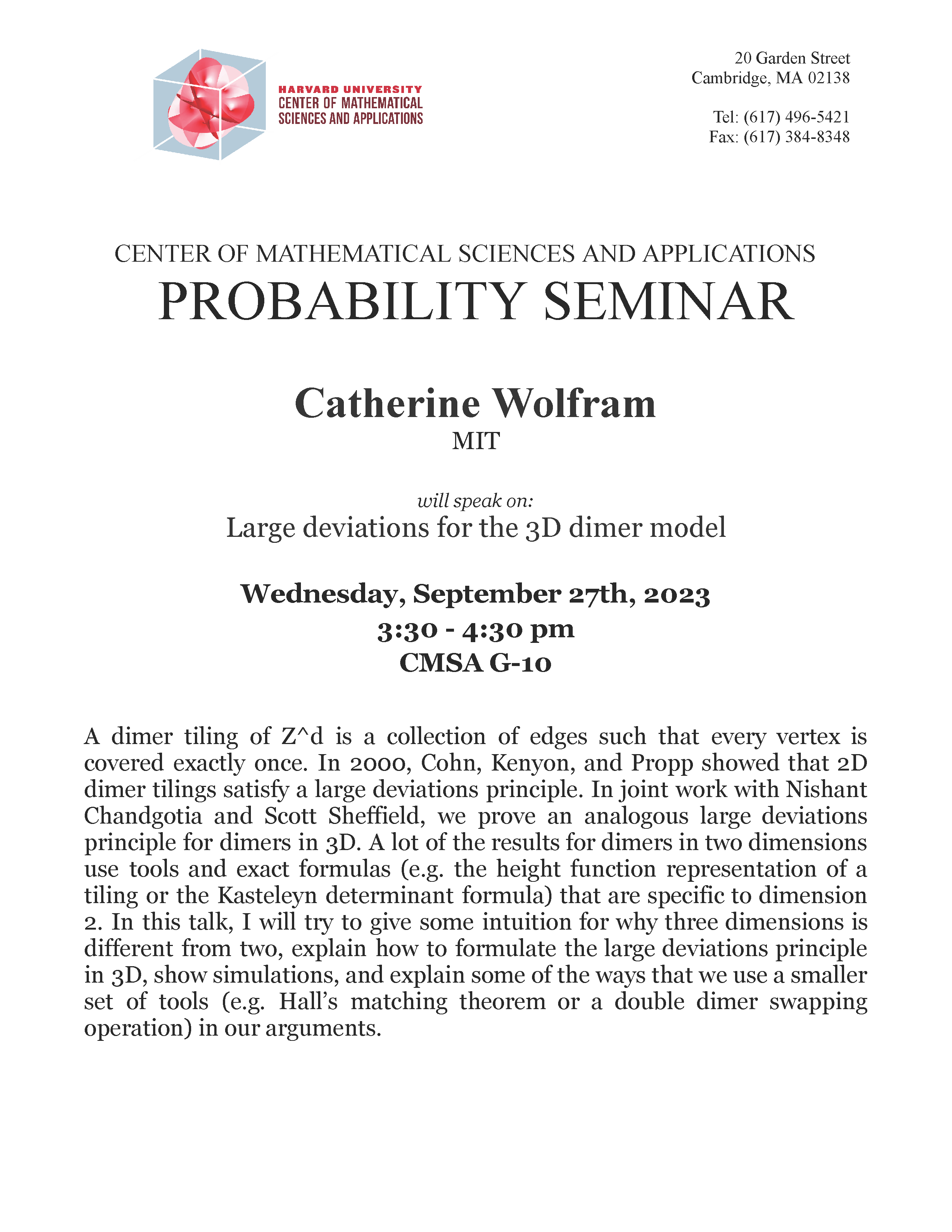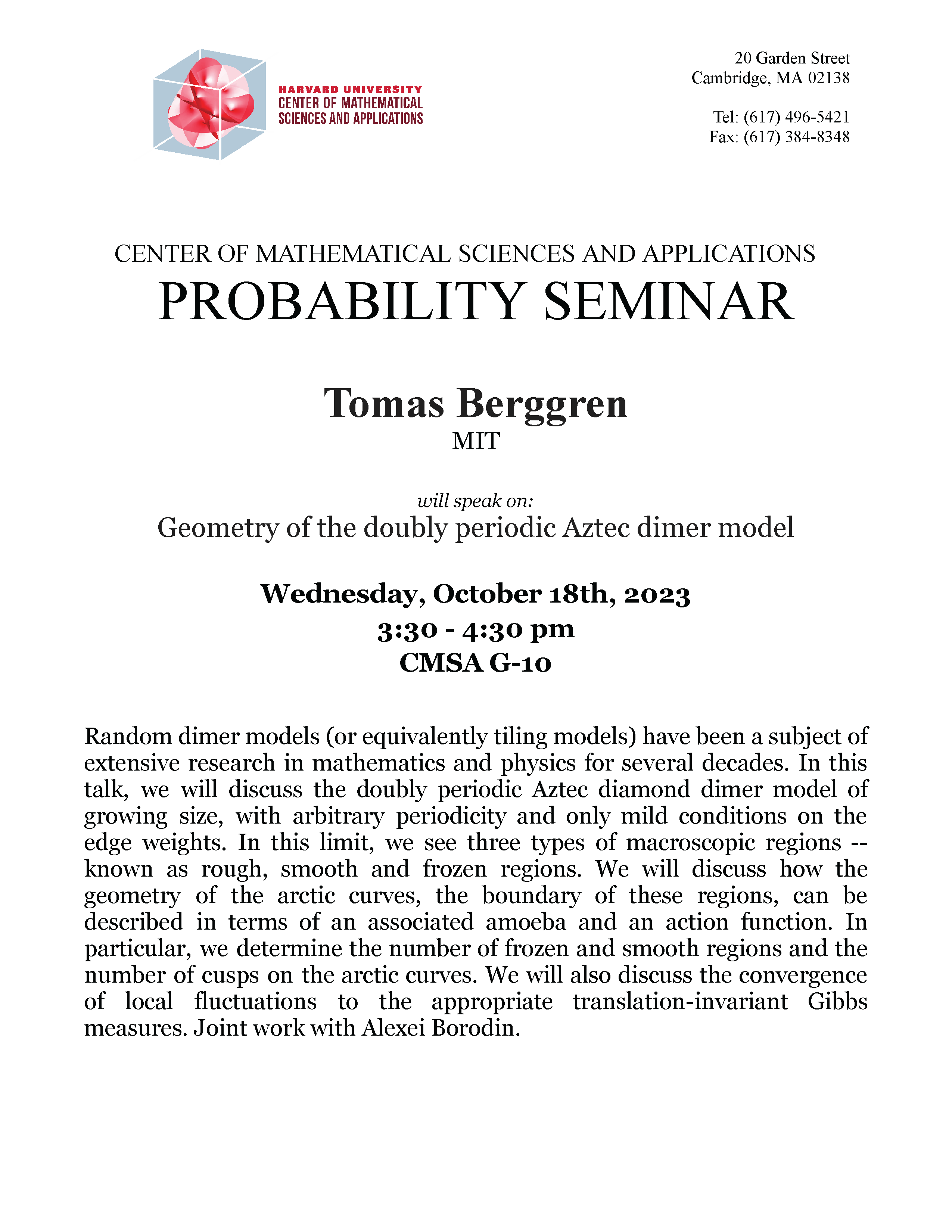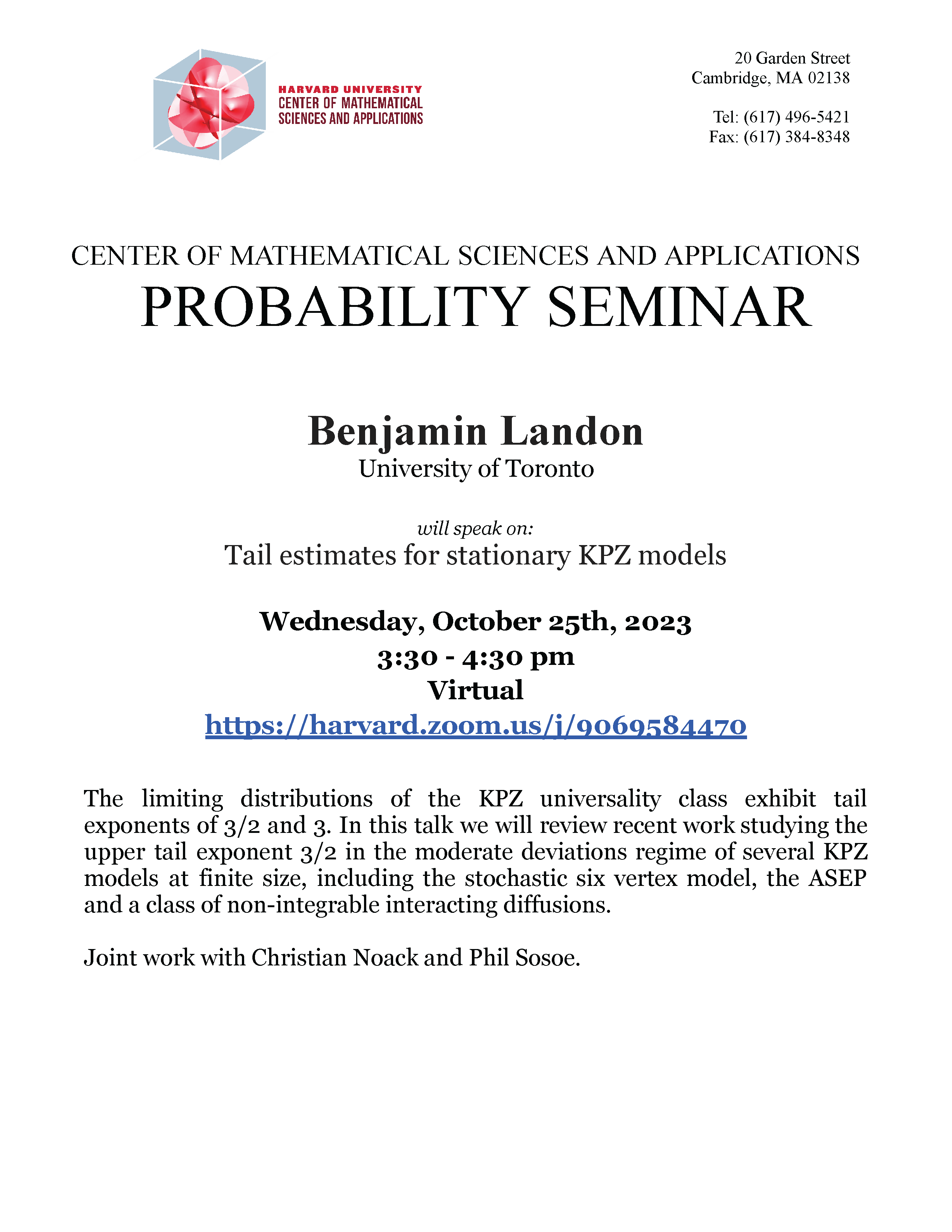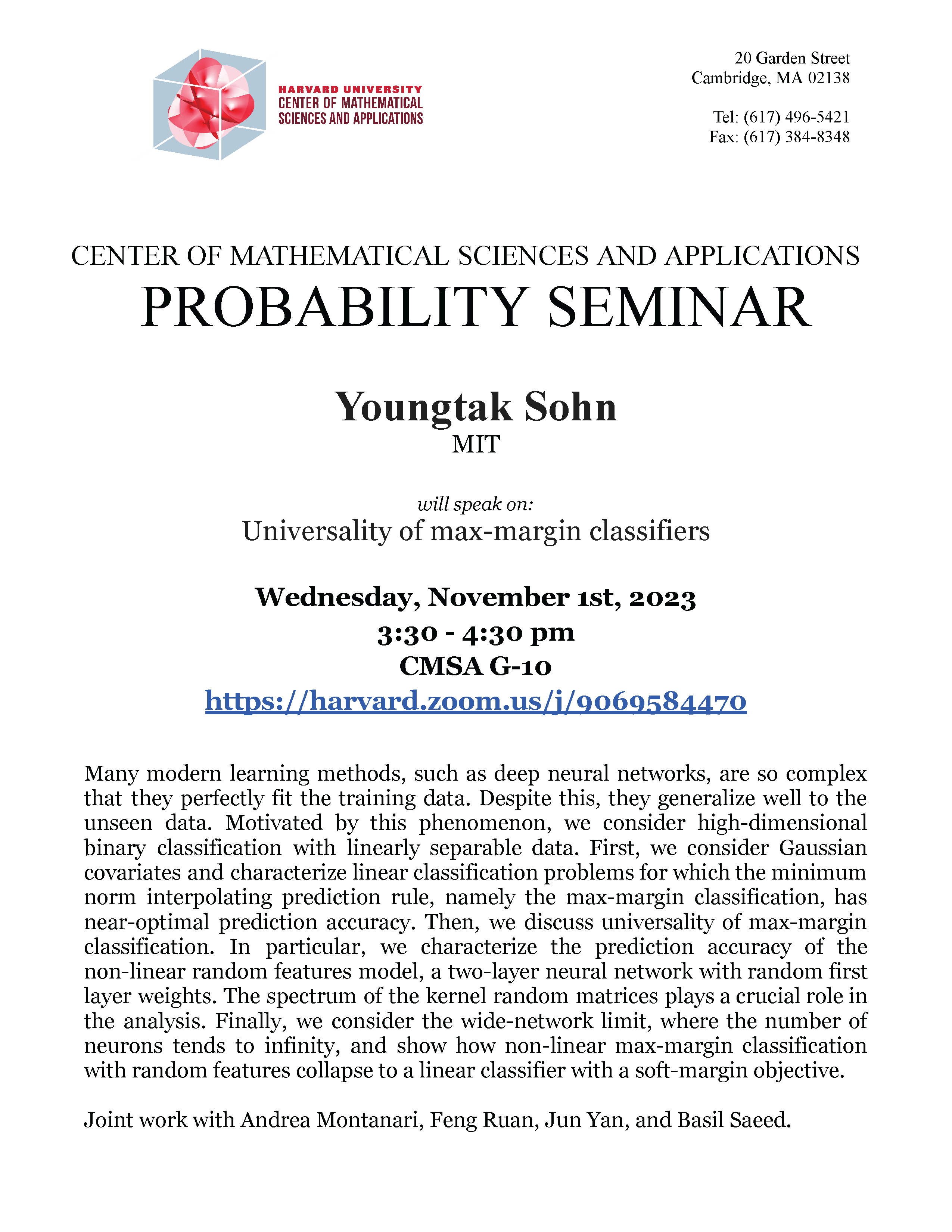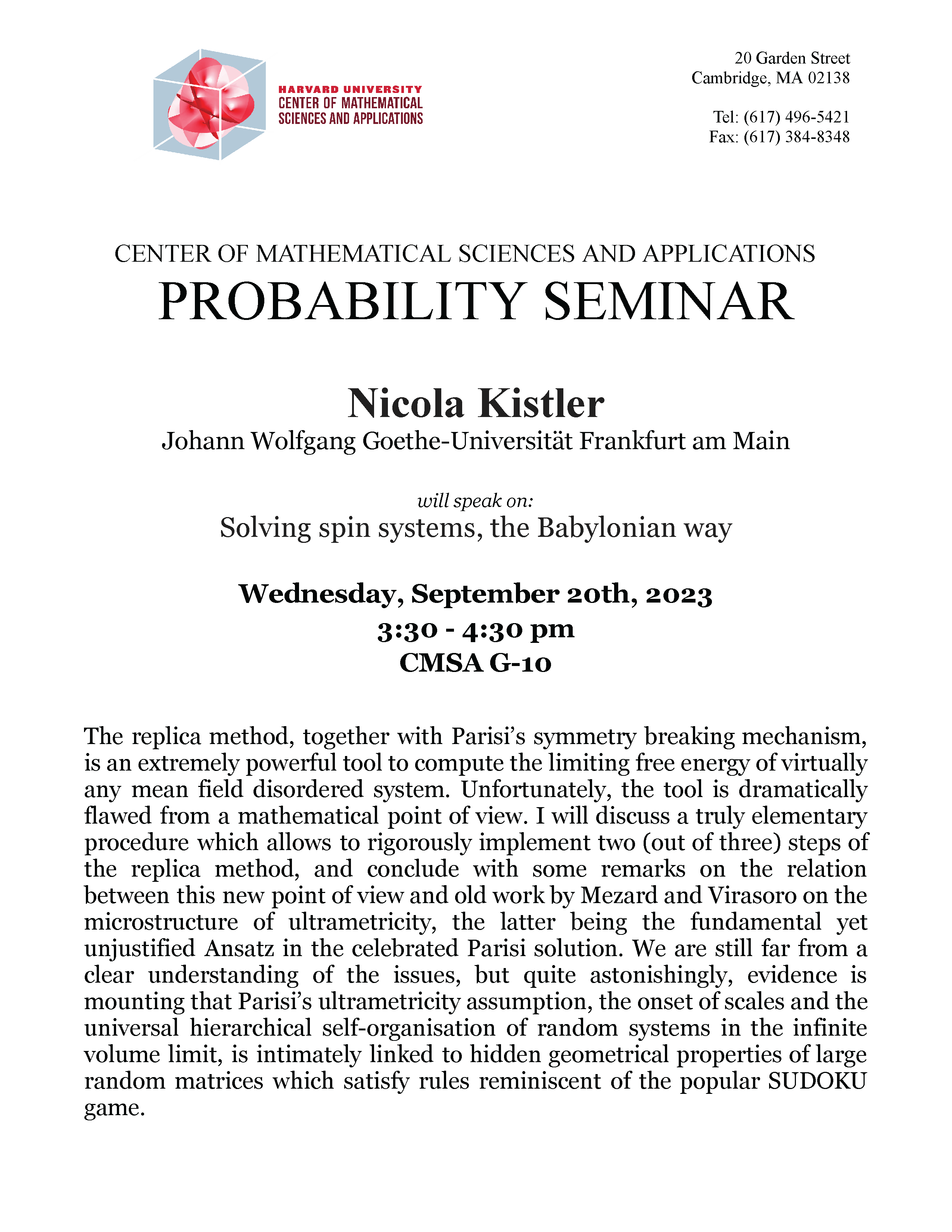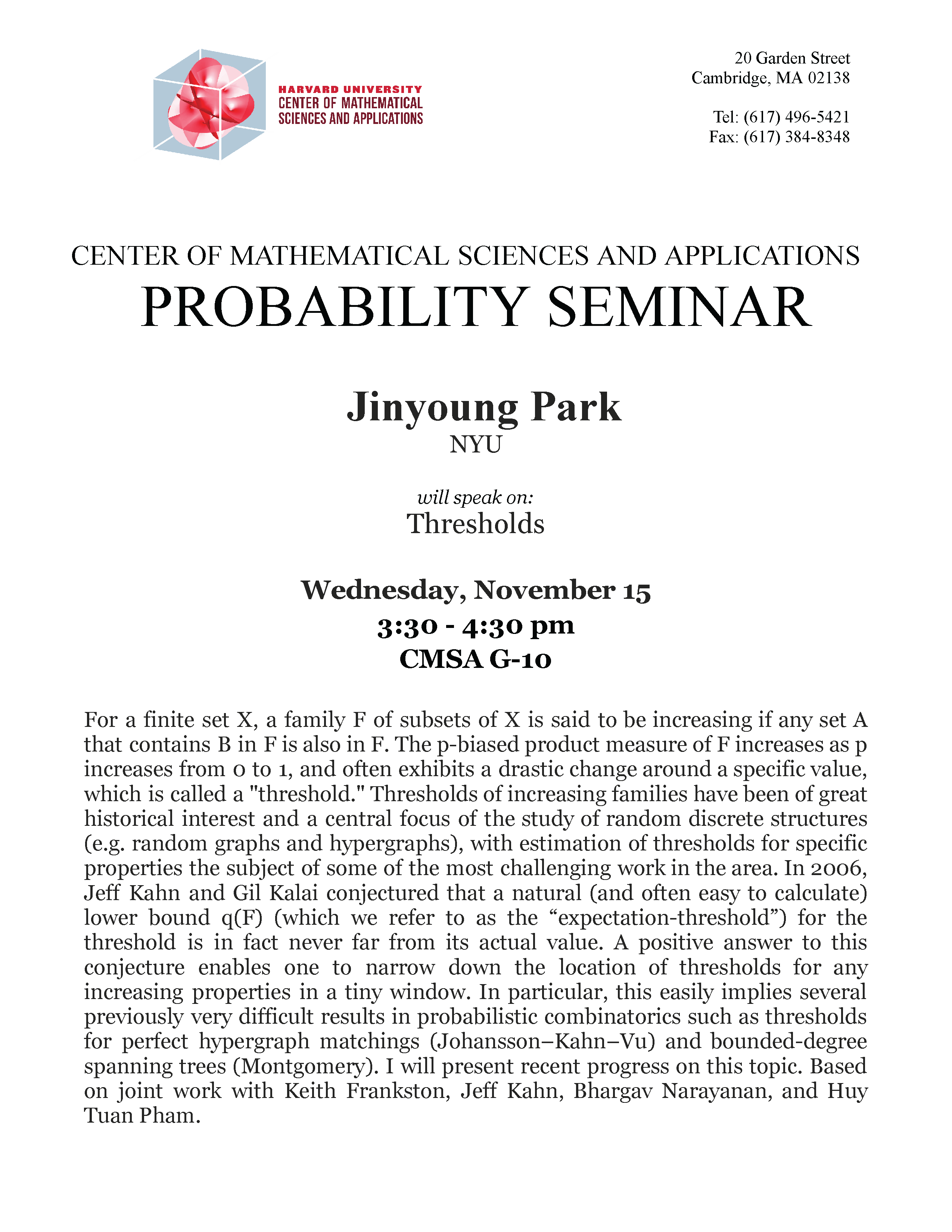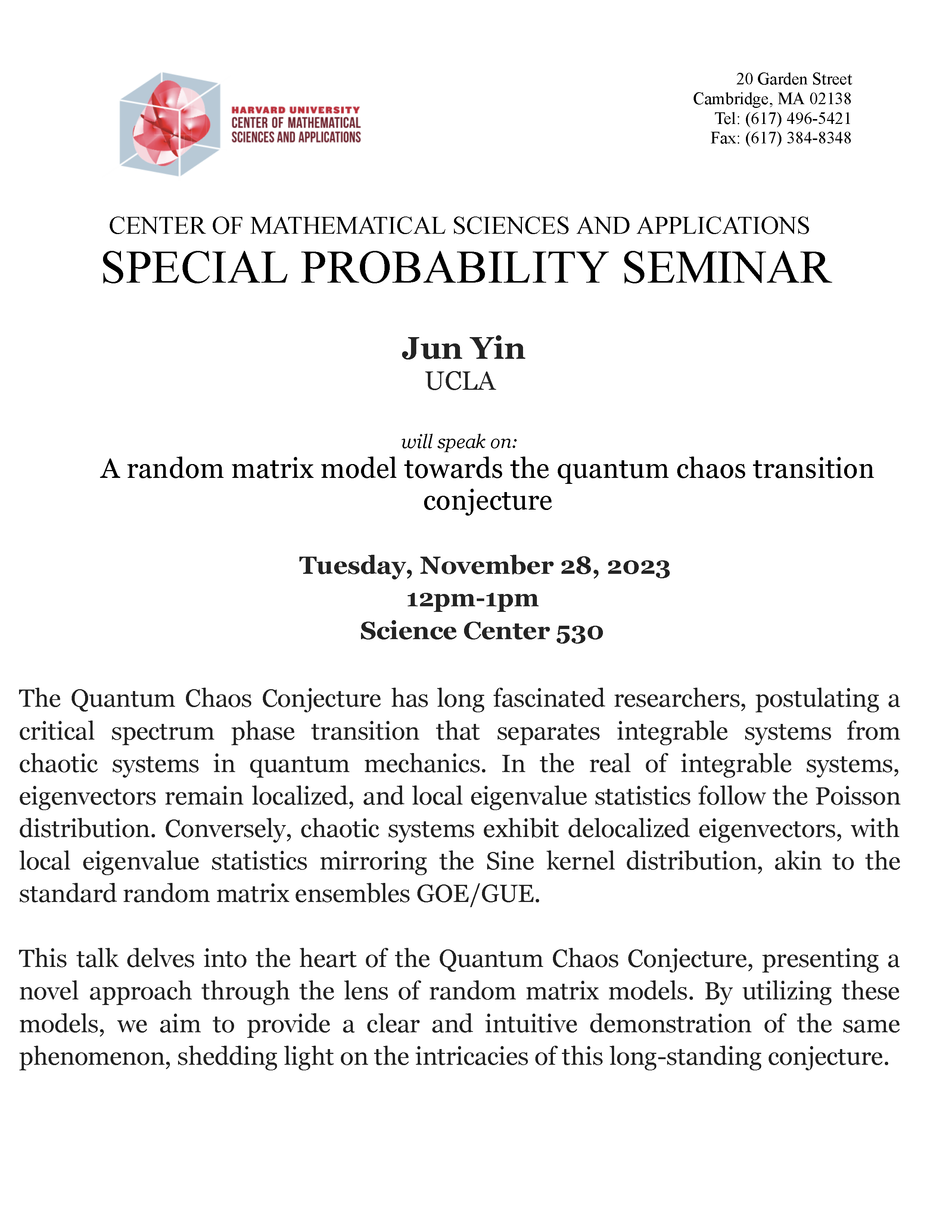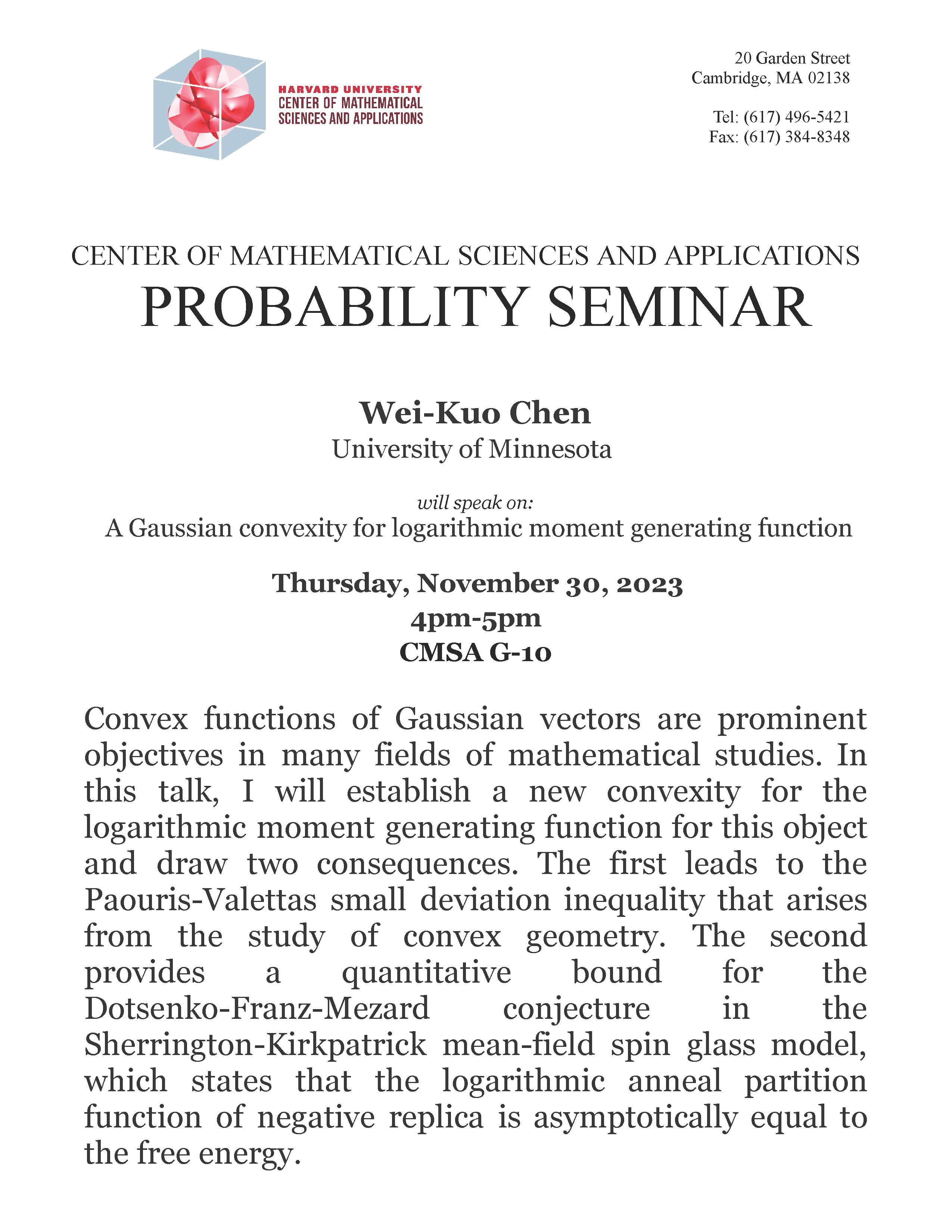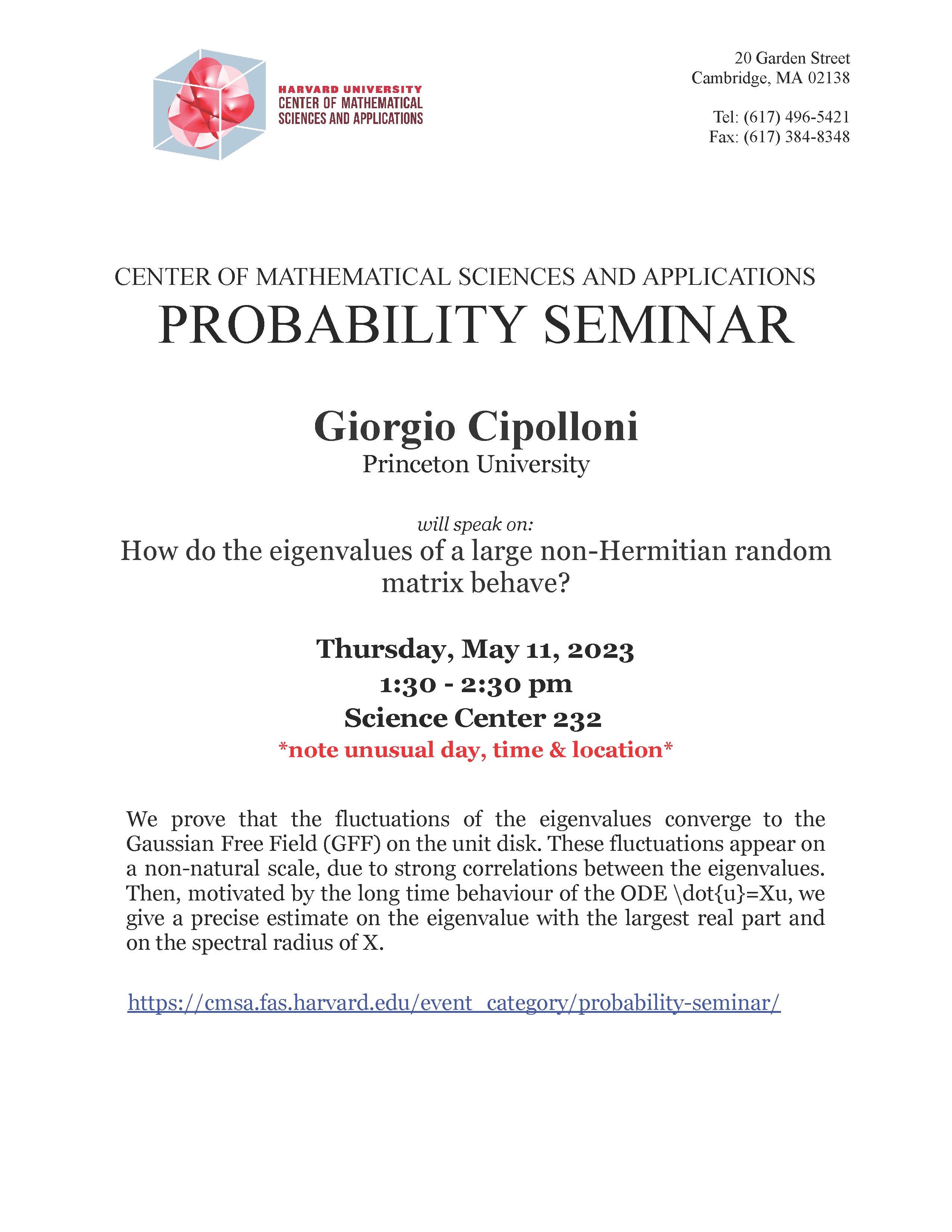
How do the eigenvalues of a large non-Hermitian random matrix behave?
Harvard Science Center 1 Oxford Street, Cambridge, MAProbability Seminar Speaker: Giorgio Cipolloni (Princeton) Title: How do the eigenvalues of a large non-Hermitian random matrix behave? Abstract: We prove that the fluctuations of the eigenvalues converge to the Gaussian Free Field (GFF) on the unit disk. These fluctuations appear on a non-natural scale, due to strong correlations between the eigenvalues. Then, motivated by the […]

